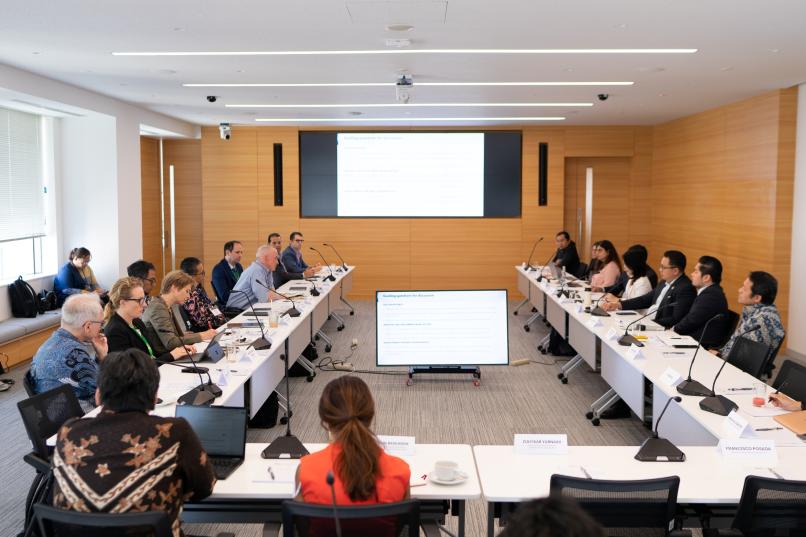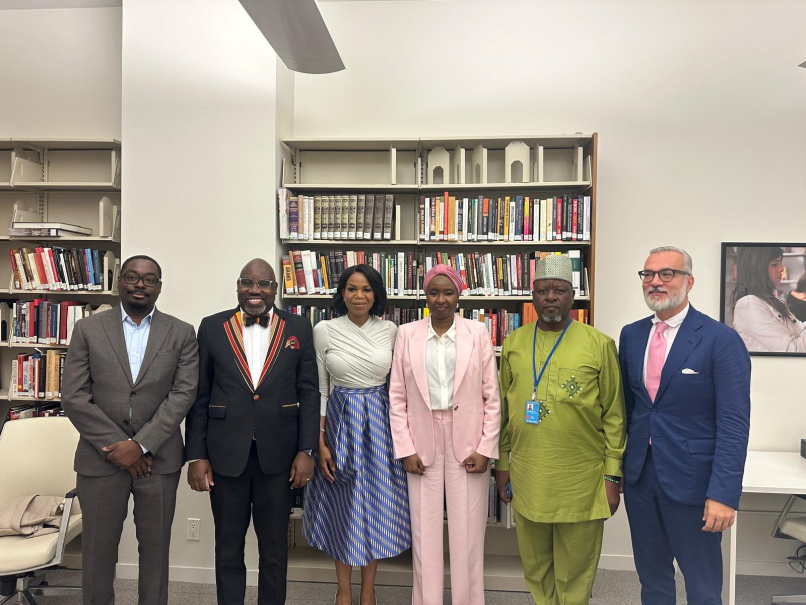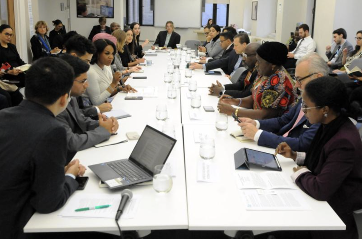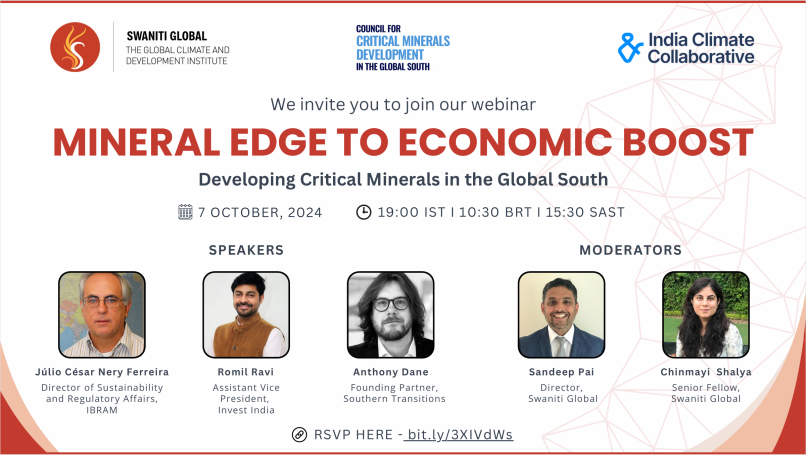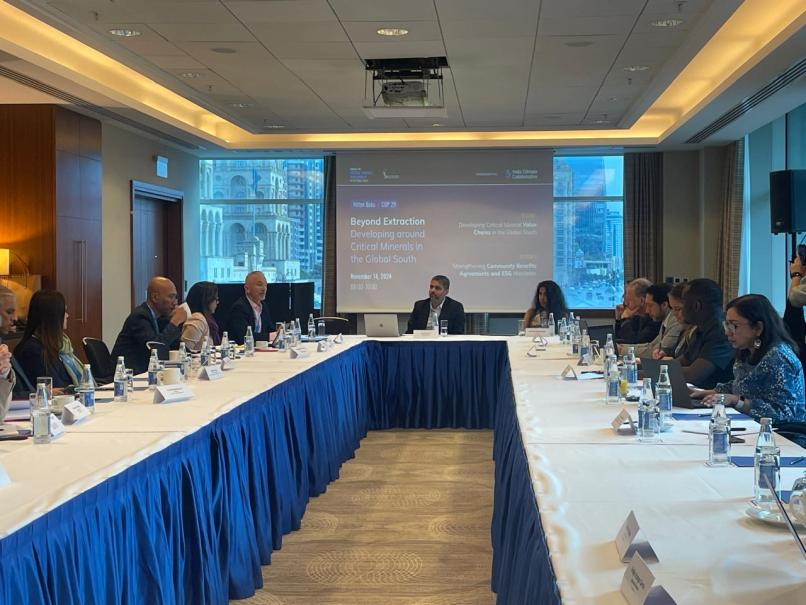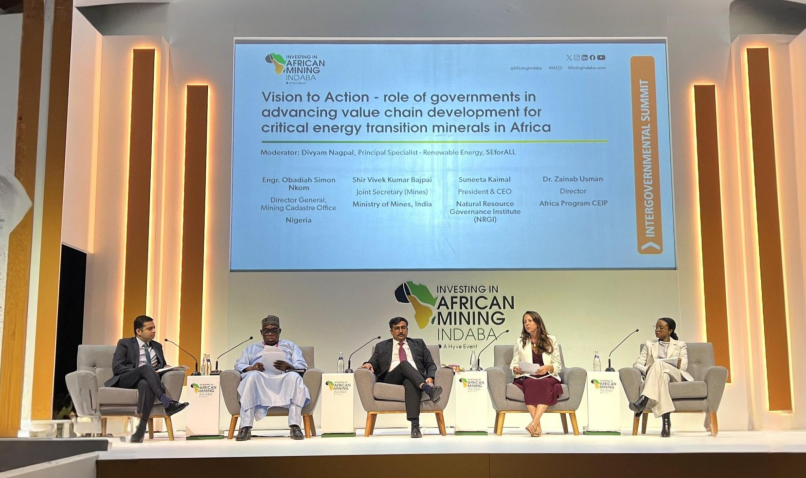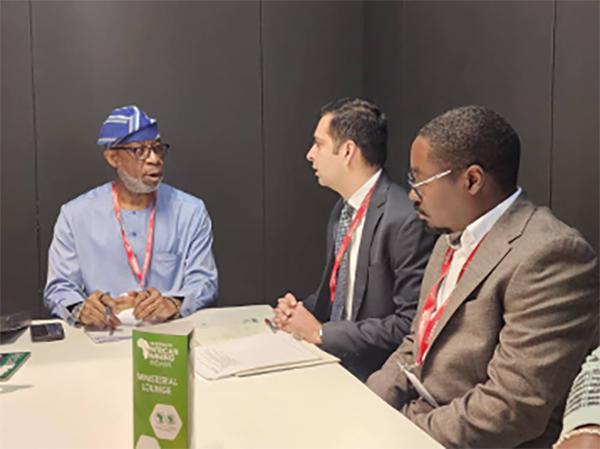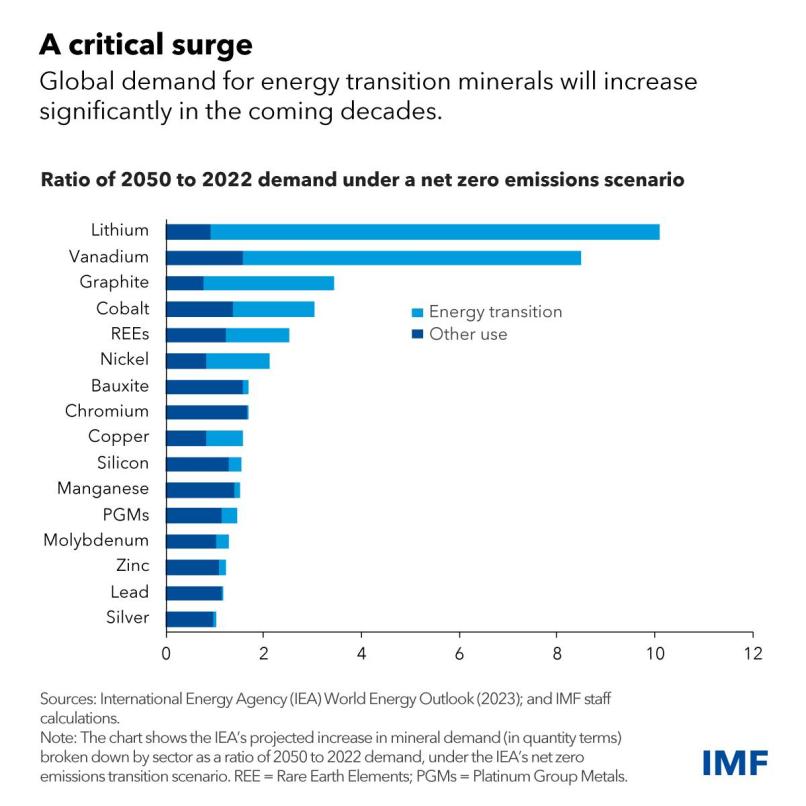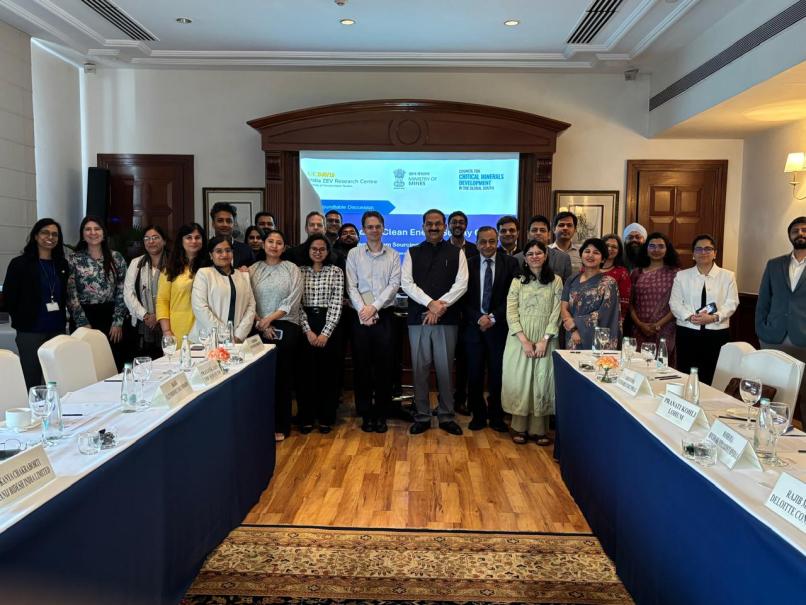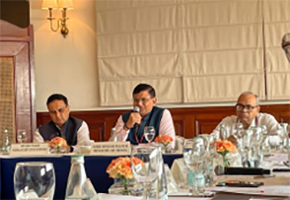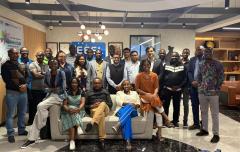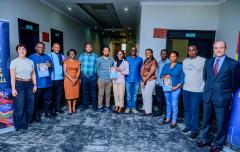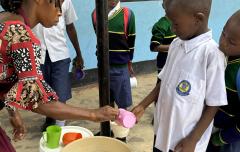Turning Critical Minerals Development into Shared Prosperity
Council for Critical Minerals Development in the Global South - One Year On
In a year defined by accelerating clean energy ambitions and growing geopolitical competition for resources, a transformative initiative has been taking shape across the Global South. The Council for Critical Minerals Development in the Global South—launched in mid-2024 by Sustainable Energy for All, Global South Centre for Clean Transportation, UC Davis, and Swaniti Global—was born from a simple but urgent premise: the developing countries, whether resource-rich or dependent, must have a more defining voice and role in global supply chains for energy transition technologies to ensure a just energy transition. In its first year, the Council has deepened engagements with governments, produced strategic research, convened over a dozen closed-door and public forums, and built action-oriented coalitions across continents. Together, they are reshaping how the Global South navigates its mineral future aligned with principles of equity and justice as emphasized by the United Nations Secretary General Panel on Critical Energy Transition Minerals.
Over the past year, the Council has emerged as a strategic platform to facilitate collaboration and exchange between countries worldwide—not just on sustainable extraction but also local beneficiation, manufacturing, trade, and equitable community benefits sharing. Countries are increasingly viewing the energy transition as a generational opportunity to build domestic industry, create jobs, and advance industrialization goals.
The Council’s first convening in July 2024 opened with a critical question: How can mineral development deliver long-term benefits for local communities? Experts from India, Brazil, and South Africa explored models for Community Benefit Agreements (CBAs). The roundtable highlighted the need for social infrastructure investment, going beyond compensation, and mitigation of long-term socioeconomic dependency on mining. Participants underscored that local communities must be partners in development—not passive recipients—to ensure the success and equitable development of these projects.
Momentum continued in September 2024, when the Council co-hosted a roundtable in Indonesia with the KADIN Net Zero Hub, focused on strengthening ASEAN green value chains for energy transition technologies. Discussions centered on how industrial clusters and Special Economic Zones could serve as platforms for building regional value chains and facilitating intra-ASEAN trade—from mineral extraction and processing to end-use products like batteries and electric vehicles. The discussions served as the basis for a deeper engagement beginning January 2025 on developing an ASEAN critical minerals demand-supply assessment analysis in support of key regional frameworks, including the ASEAN Carbon Neutrality Strategy, and the under development ASEAN Minerals Development Vision.
Later that month, the Council hosted a high-level roundtable at the UN General Assembly 2024 with the Africa Program of the Carnegie Endowment for International Peace. The session convened Ministers from Nigeria, Ghana, and Malawi, alongside heads of financing institutions, UN agencies, and development partners. The roundtable identified gaps in data, tools, capacities, and policy frameworks that currently limit critical minerals development in the Global South and potential solutions. The discussion anticipated recommendations from the UN Secretary-General’s Panel on Critical Energy Transition Minerals. Alongside the high-level roundtable, the Council engaged with the Africa Minerals Strategy Group - an intergovernmental organization representing 16 African countries with the goal of promoting exploration, extraction, production, local beneficiation and commercialization to ensure a sustainable, transparent and secure supply of critical minerals.
The Council strengthened its south-south engagement activities hosting a public webinar Mineral Edge to Economic Boost in October 2024. Speakers from India, Brazil, and South Africa highlighted that while many critical minerals are found in the Global South, the majority of processing, manufacturing, and market power remains concentrated in the Global North. Discussants emphasized that without industrial policy, South–South cooperation, and strategic investment, mineral-rich countries risk remaining locked into low-value extraction. It explored specific areas of collaborations where action is needed to address pertaining barriers and what lessons are emerging from the Global South countries.
At COP29 in November 2024, the Council supported a private roundtable convened by Swaniti Global and the India Climate Collaborative. The focus was on cooperation between Brazil, India, and South Africa to develop local mineral value chains and implementation of ESG standards. Participants discussed how Global South countries can balance resource extraction with social equity and regional economic goals as they face similar constraints in investment, capacity, and trade.
In February 2025, the Council hosted two panels at Mining Indaba in South Africa, marking a milestone in engagement in key African policy forums. The first panel focused on how governments can enable mineral value chain development and the importance of south-south collaboration, featuring high-level decision makers from the Ministry of Solid Minerals Development, Nigeria and the Ministry of Mines, India. The second addressed what it would take to scale midstream and downstream investment, including insights from multilateral development banks, private equity, and industry leaders.
At Mining Indaba, the Council also shared an update with the Nigerian Minister for Solid Minerals Development on the national critical minerals demand-supply assessment being undertaken by the Council, which will highlight opportunities for Nigeria in the value chains of energy transition technologies such as batteries.
Building on its country-level data and analytics, the Council completed its minerals demand-supply assessment analysis for India, led by the UC Davis’s India ZEV Research Centre, with a deep-dive on lithium. Coming in the backdrop of the recently launched National Critical Minerals Mission, the study provides strategic inputs to the government on securing minerals supply chains and the role of south-south cooperation in advancing local value. In May 2025, the Council and the Indian Ministry of Mines hosted a closed-door roundtable in New Delhi focused on “Securing India’s Clean Energy Supply Chains: Upstream Lithium Sourcing Strategies for India”.
The session outlined a structured approach for India to build supply resilience through asset acquisition, strategic international cooperation, and the expansion of domestic recycling. Officials from India’s Ministry of Mines, National Security Council Secretariat, and NITI Aayog joined representatives from Australia, Argentina, the Netherlands, and the United States.
At the heart of the Council’s work is a commitment to evidence-based decision-making. Over the past year, it has produced a growing body of analysis to inform policy and guide implementation. A forthcoming report, led by Swaniti Global on behalf of the Council, examines how Community Development Agreements can serve as vehicles for domestic investments in infrastructure, jobs, and governance. A comparative brief Transition Minerals in South Africa, Brazil, and India: A Brief on Current Value Chains and Strategic Priorities analyzes the current state of critical mineral value chains in South Africa, Brazil, and India, identifying national strategies, gaps, and opportunities for collaboration among Global South countries. These insights are further consolidated in the Council’s Roadmap for South–South Collaboration, which outlines five priority areas for joint action: investment platforms, workforce development, regional R&D, interoperable ESG standards, and coordinated trade policy. Together, these publications form a strategic foundation already in-use by stakeholders that are exploring regional partnerships and cross-border initiatives.
As the world accelerates toward net-zero, demand for key energy transition minerals is set to skyrocket—lithium by nearly 12×, with strong growth projected for cobalt, graphite, nickel, and rare earth elements. This projected surge, based on the IEA's net-zero scenario, underscores the urgent need for investment in mineral value chains. For mineral-rich Global South countries, this is not just a supply challenge—it is an opportunity to lead across these value chains via sustainable, locally anchored development.
Governments and industry in the U.S., EU, and China are realizing national strategies to secure supply access. If Global South producers are to shape global markets, coordination is no longer optional—it’s essential. Africa alone holds over 30% of the world’s critical mineral reserves, including 70% of global cobalt and 85% of manganese; yet, the continent holds just a fraction of processing capacity.[1]
In that landscape, the Council’s model stands out. It not only brings stakeholders together—it helps build the tools, data, and analyses needed to chart a new path. One year in, the Council is proving that critical minerals can power not just the clean energy transition, but a fairer global economy.
One year in, the Council is already demonstrating that the Global South can lead not only in supplying minerals—but in defining how they are produced, by whom, and to what end.
You can learn more about the Council for Critical Minerals Development in the Global South here.
You can access the publications here.
[1] Atlantic Council, From greenfield projects to green supply chains: Critical minerals in Africa as an investment challenge, 2024.

